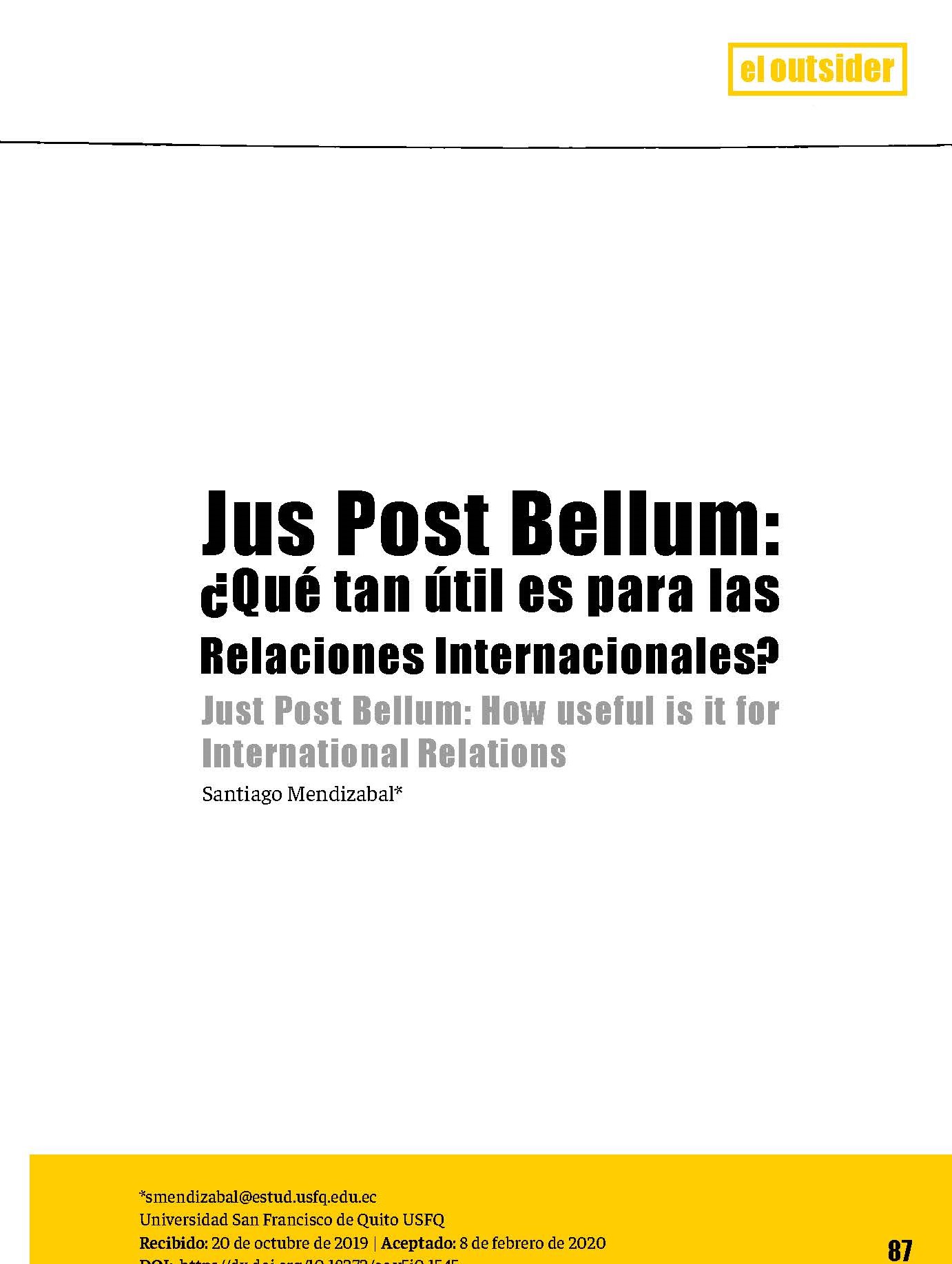Jus Post Bellum: ¿Qué tan útil es para las Relaciones Internacionales?
Contenido principal del artículo
Resumen
El siguiente artículo analiza la aplicación de Jus Post Bellum, un concepto derivado de la teoría de la Guerra Justa de Michael Walzer. En primer lugar, se concede una definición de la teoría de la guerra Justa a partir de los enunciados de Williams y Caldwell. Luego, se explica Jus Post Bellum, esto incluye obligaciones que tienen los Estados al momento de intervenir. A continuación, se destacan varios casos en los cuales, Estados Unidos se adhirió a los principios de Jus Post Bellum. Y, después, situaciones en las cuales no lo hizo. Finalmente se utilizan estos ejemplos para explicar cómo ha cambiado la moralidad de los estados a través del tiempo.
Detalles del artículo
Citas
Casado, Rafael. Derecho Internacional. Madrid: Editorial Tecnos, 2017
Dumke, Rolf. “Reassessing The Wirtschaftswunder: Reconstruction And Postwar Growth In West Germany In An International Context 1.” Oxford Bulletin of Economics and Statistics, 1990.
Hogan, Michael. “The Marshall Plan: America, Britain and the Reconstruction of Western Europe.” Cambridge University Press, 1987.
Iasiello, Louis. “Jus post bellum: The moral responsibilities of victors in war.” Naval War College Review. 2004.
Marín, Jefferson. “Las teorías de la guerra justa. Implicaciones y limitaciones.” Revista Guillermo de Ockham. 2005.
United States Department of State. “Occupation and Reconstruction of Japan, 1945–52”. Consultado el 20 de enero, 2020. https://history.state.gov/milestones/1945-1952/japan-reconstruction
Villafañe, Víctor López. “La nueva era del capitalismo: Japón y Estados Unidos en la cuenca del Pacífico.” Siglo XXI. 1994.
Walzer, Michael. “The aftermath of war: Reflections on jus post bellum”. Belgrade Philosophical Annual 23. 2010.
Williams, Robert y Dan Caldwell. "Jus Post Bellum: Just war theory and the principles of just peace." International studies perspectives. 2006.

